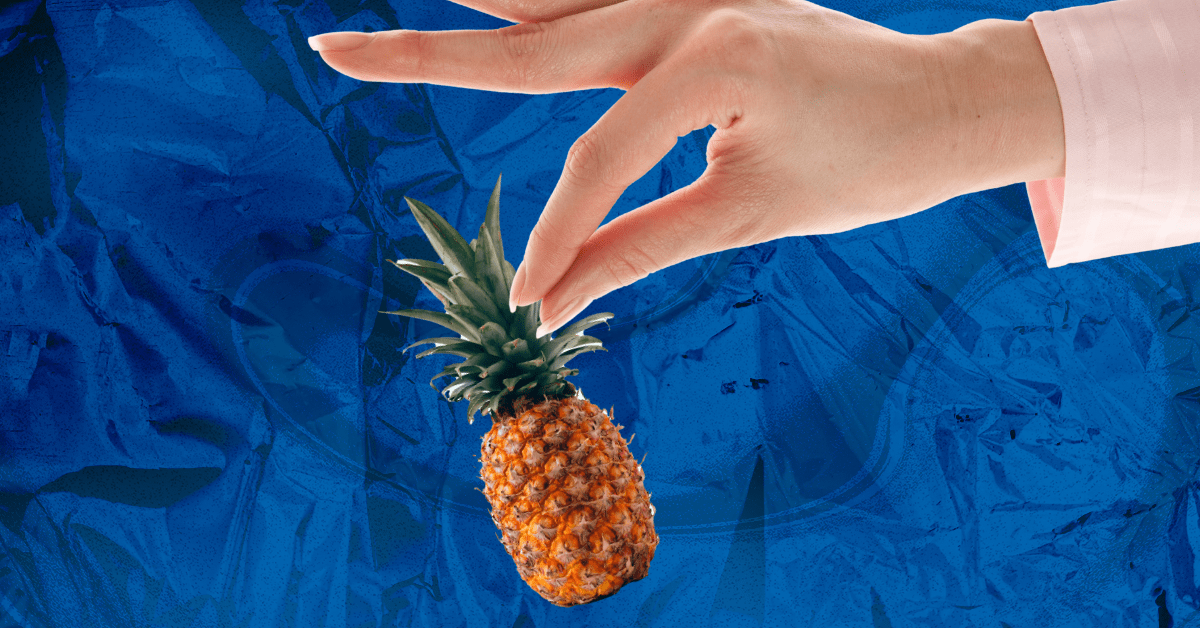Pineapple might not be the king of fruits (yet), but it’s definitely the king of weird facts.

Like it eats you back as you’re eating it, and grows on the ground like this.
The latest? It’s gettin’ really small.
Fresh Del Monte, a global producer of fresh fruits and veggies, debuted its latest creation in March: Precious Honeyglow. At 1.5- to 2-pounds each, it’s the company’s most compact model yet.
Go small or go home
This isn’t the produce giant’s first rodeo with miniature pineapples. In 2022, it launched Mini Honeyglow to meet consumer demand and curb food waste.
People like their food in easy-to-consume packages:
- Over 85% of consumers look for convenience in their produce.
- Over 66% of adults prefer fruit-based snacks.
… and pineapples are not exactly a snack that’s easy to crack.
But there’s more to the desire for smaller servings: People are delaying marriage and children, creating a rise of single-person households in the US and beyond. They live alone, eat alone, and a full-sized pineapple for one creates unwanted food waste.
Around 30% of the global food supply is wasted, per Forbes, costing $1T a year. Halving pineapple sizes won’t exactly cut that problem in half, but limiting food waste matters to consumers.
More tricks up their sleeves
Petite piñas aren’t the only genetically modified pineapples that have been produced by Fresh Del Monte’s marketing savvy:
- The Pinkglow has its own website and a cult following, but the ~3-pound fruit will set you back $10-$39.
- The Rubyglow (sorry, no special website for you), which is only available in China and gets a sales boost during the Chinese New Year.
And they’re not the only fruits in the space.
From thornless blackberries and drought-proof melons to fungus-resistant bananas, fruit producers are getting creative to meet consumer demand and cater to the changing climate.
But…
… the genetically modified food market, which is set to reach $169B+ by 2027, will have to contend with public mistrust.
Baby pineapples might not be enough to change that story just yet.
We’re dying to get a taste, though — at least we were until we saw that shipping for Precious Honeyglows cost even more than the fruit itself.
